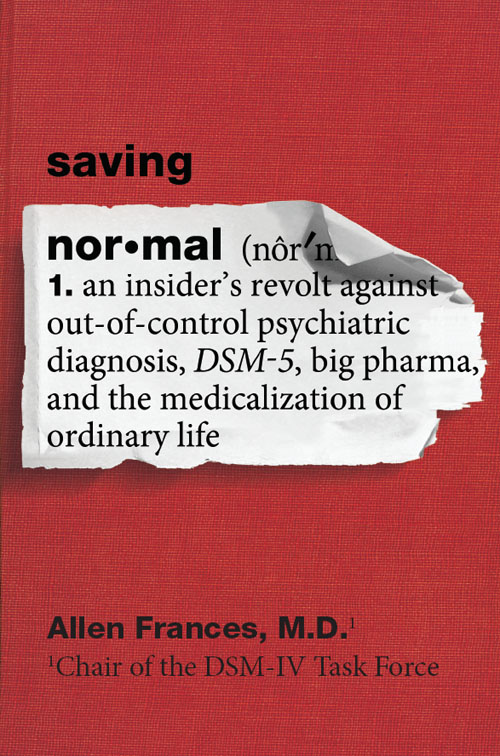
Saving Normal
An Insider's Revolt against Out-of-Control Psychiatric Diagnosis, DSM-5, Big Pharma, and the Medicalization of Ordinary Life
شورش یک فرد آگاه علیه تشخیص روانپزشکی خارج از کنترل، DSM - ۵، فارما بزرگ، و درمان زندگی معمولی
کتاب های مرتبط
- اطلاعات
- نقد و بررسی
- دیدگاه کاربران
نقد و بررسی

March 18, 2013
Wary of liberties being taken by the psychiatric community with its definition of “normal,” Frances (Essentials of Psychiatric Diagnosis) goes on a sobering foray through mental disorders and the social institutions that have defined and redefined them. These recalibrations will be promulgated, most prominently, by the soon-to-be-published DSM-5. Frances, who served as the chairperson for DSM-IV, explains that the new version of the Diagnostic and Statistical Manual of Mental Disorders (widely known as the “bible of psychiatry”) has been recklessly expanded and rejiggered, to the point that nearly anything can now be pegged as an aberration. Such “diagnostic inflation” entails the obvious risks of unnecessary and/or excessive treatment, but perhaps even more pernicious is its grander effects on what society—not just specialists—deem normal. Despite Frances’s years of professional experience, his analysis is sometimes scattered with historical and cultural asides that, while interesting, do not clarify the trajectory and impact of the DSM. Still, few are as well-equipped as Frances to map the dynamic field of psychiatry, and his rendering of its shifting contours is timely, crucial, and insightful—as are his solutions for navigating it. Agent: Carrie Kania, Conville and Walsh Literary Agency (U.K.).

April 15, 2013
Frances (emeritus, former dept. chair of psychiatry & behavioral science, Duke Univ. Sch. of Medicine) reveals significant, pernicious deficiencies in the psychiatric diagnostic system in this critique of the Diagnostic and Statistical Manual (DSM), now entering its fifth iteration. According to Frances, this endeavor to standardize psychiatric diagnosis is doomed to failure because, in the end, the classification is a product of human biases. The author's authority as chair of the Task Force for the DSM-IV, as well as a leader in a subgroup for the DSM-III and DSM-III-R, adds credibility to his argument. Biases of committee members, coupled with the financial interests of Big Pharma, he contends, have generated diagnostic fads, such as multiple-personality disorder. Popular diagnoses such as ADD have been overgeneralized to benefit the profits of pharmaceutical companies as medication is dispensed more liberally. Frances argues that "normal" has vanished because everyone qualifies for a psychiatric diagnosis at some point in life. VERDICT An indispensable guide for professional and lay readers of Peter D. Kramer's Listening to Prozac. [See Prepub Alert, 11/25/12.]--Lynne Maxwell, Villanova Univ. Sch. of Law Lib., PA
Copyright 2013 Library Journal, LLC Used with permission.

























دیدگاه کاربران